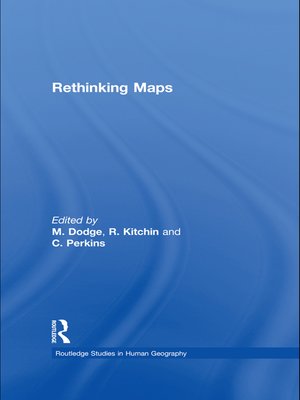Rethinking Maps
ebook ∣ New Frontiers in Cartographic Theory · Routledge Studies in Human Geography
By Martin Dodge

Sign up to save your library
With an OverDrive account, you can save your favorite libraries for at-a-glance information about availability. Find out more about OverDrive accounts.
Find this title in Libby, the library reading app by OverDrive.



Search for a digital library with this title
Title found at these libraries:
| Library Name | Distance |
|---|---|
| Loading... |
Maps are changing. They have become important and fashionable once more. Rethinking Maps brings together leading researchers to explore how maps are being rethought, made and used, and what these changes mean for working cartographers, applied mapping research, and cartographic scholarship. It offers a contemporary assessment of the diverse forms that mapping now takes and, drawing upon a number of theoretic perspectives and disciplines, provides an insightful commentary on new ontological and epistemological thinking with respect to cartography.
This book presents a diverse set of approaches to a wide range of map forms and activities in what is presently a rapidly changing field. It employs a multi-disciplinary approach to important contemporary mapping practices, with chapters written by leading theorists who have an international reputation for innovative thinking. Much of the new research around mapping is emerging as critical dialogue between practice and theory and this book has chapters focused on intersections with play, race and cinema. Other chapters discuss cartographic representation, sustainable mapping and visual geographies. It also considers how alternative models of map creation and use such as open-source mappings and map mash-up are being creatively explored by programmers, artists and activists. There is also an examination of the work of various 'everyday mappers' in diverse social and cultural contexts.
This blend of conceptual chapters and theoretically directed case studies provides an excellent resource suited to a broad spectrum of researchers, advanced undergraduate and postgraduate students in human geography, GIScience and cartography, visual anthropology, media studies, graphic design and computer graphics. Rethinking Maps is a necessary and significant text for all those studying or having an interest in cartography.







